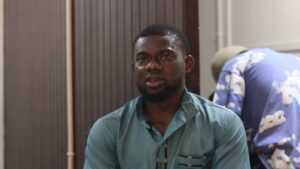
Many people are unemployed. Many are seeking for employment in various sectors of the economy. Parents and guardians who have sacrificed their resources and educated their sons and daughters to various academic and professional levels are still bearing the burden of feeding, maintaining, remitting their children or funding their further education and professional developments. So, getting a job or better still a good job will bring a sigh of relief to them.
It may be heartwarming to some people to hear the availability or creation of job opportunities in the economy. The Daily Graphic (No. 22358, Tuesday December 12, 2023) reported “A new intervention to facilitate the employment of 20,000 young people as a practical step towards a reduction in youth unemployment has been unveiled in Sunyani, the Bono regional capital. The Business and Employment Assistance Programme (BEAP), a flagship initiative of the Youth Employment Agency (YEA), will nurture young entrepreneurs and empower them to generate employment opportunities for the large pool of unemployed youth in the country”.
Again, the Daily Graphic (No. 22366, Thursday December 21, 2023) had reported about future job opportunities with the caption, MasterCard, MiDA invest $6.1m in rice value chain project: According to Mr Ofori-Atta, “We are committed to leveraging this funding to provide working capital for primary production actors, paving the way for increased job creation and a 20 per cent boost in rice output”. The report added that “… the programme would yield to remarkable outcomes, including the creation of 38,269 jobs, with 70 per cent designated for women”.
There are other job opportunities elsewhere within the country and outside the country. Those interested must prepare themselves for the interviews ahead to be successful during the recruitment process. Sometimes, people do not get jobs because they don’t prepare for interviews and therefore do not perform well to qualify for employment or they lack the skills to display that they well qualified during employment interviews.
Things to Consider for Employment Interviews
In this article, I want to provide some helpful tips for prospective employees to qualify for job positions or recruitment and secure good jobs. These are not all that you need but they will equip you better.
Job seekers need to exercise perseverance. They don’t have to be timid or afraid about seeking for jobs. They should not abandon the efforts of continually seeking and pursuing job opportunities. They should not quit. They should not give up because one day they will succeed. They should motivate and encourage themselves in pursuit of getting good employment. They should develop positive or optimistic attitudes. It is also necessary to develop self-esteem and self-confidence. They may achieve these through reading positive-thought provoking materials and relate to mentors and progressive people. The Warrior’s Creed must be a guiding principle: “I will lay me down to bleed awhile, and then rise and fight again”.
Prospective employees must read more and do research about their career interests. They need to learn more about current trends in their areas of job pursuits. They have to read about the relevant developments in their chosen areas of industries. They must also read about their prospective roles and be conversant with laws or acts and legal instruments governing the industrial operations or professional practice. If they can, they should read professional journals and newsletters in their chosen fields. In particular, they must know enough about the specific organisations that are recruiting. They must not forget to know all their visions, missions and core values.
Unemployed persons can do free online courses in areas they are interested. Also, they should improve on their IT skills in Excel, Word and Power Point. They should do voluntary jobs. These steps will increase their professional knowledge, occupational insights, qualifications and experience. In effect, they will have an improved CV outlook and become more competitive in the job market.
In writing their CVs, prospective interviewees have to speak the truth. They should not allude to qualifications, skills and professional aptitudes they do not possess because when they are tested, they will be found wanting or when checked, they will be found to be liars and this will disqualify them. Job seekers must not wait until they are invited for interviews before they write their CVs hurriedly. They must also have it ready and review them regularly as and when necessary. CVs must be tailored to be relevant to the advertised positions. They must avoid CVs with mistakes and poor arrangements. Furthermore, there must not be inconsistencies in the CVs. The CVs must also be well written and edited. Prospective employees must be very conversant with the details on their CVs because it is likely that some of the panelists may raise their questions from the CVs presented.
If they have attended interviews which they failed to secure employment, they must learn from their mistakes. According to Levitt and Harwood, “Setbacks are not failures; you only fail when you quit trying”. They should learn to surmount the shock experienced after previous interview failures. Candidates for interviews should improve on their communication skills. As it is said, “reading maketh the man”. So they should read more and endeavour to improve on their oral and written communication skills. It will be useful if they learn to speak with respect and confidence. Furthermore, learning to be articulate about their abilities, talents, accomplishments, achievements, awards and professional and industrial practices and further being assertive are relevant.
Preparing very well for interviews is paramount. It enhances confidence. Candidates for interviews must demonstrate competence, courage, integrity and professionalism of their potentials. They must learn to be affirmative and demonstrate willingness to learn and adapt. It is very useful to do mock interviews. They should remember that practice makes perfect. From their performance, they can take note of their short comings, weaknesses, communication lapses, absence of assertiveness or confidence and lack of coherence in responses to questions. They must learn to cite practical and professional examples to support any position they take. According to Napoleon Hill, “With every problem or obstacle lays the seed of an equal or greater opportunity or benefit. Your job is to find it.”
A member on the interview panel may be set there purposely to test your temperament. He may make you feel uncomfortable. He may also try to intimidate, criticize, frustrate you or make you feel tensed to see how you will react. So as a prospective interviewee, you must develop “shock absorbers” and manage your temperament satisfactorily when provoked. It is better to wear pleasant face than display moodiness during interviews.
With regard to appearance and dressing, candidates for interviews must appear decent, neat and exhibit professional outlook. They must select the appropriate professional colours and hair must be well styled and kempt. They don’t have to look casual. They must have a good knowledge of the institutions’ dress code and dress accordingly.
Prospective interviewees must also be abreast with current affairs both on the domestic and international scenes and the effects (if any) on the jobs they are seeking and the economy of Ghana. Listening to news stories and reading newspapers, magazines and articles from credible internet sources will be useful.
In work organisations, time management is of essence. Punctuality and regularity are esteemed. Candidates must always get to the interview venue early, before the commencement of the interview. This will help them not to be tensed or nervous.
Job seekers must acquire and develop soft skills besides their technical skills (hard skills acquired through education, training and apprenticeship) which will assist them to stand out at their workplace. Soft skills are character traits and attitudes that assist a worker in doing his work well, relating professionally with colleagues and driving him to excel. Soft skills such as being a good team player and a critical thinker, creative, open to criticism, cooperating, empathetic, adaptable, accommodating, having attention to details, being flexible and a problem solver, able to collaborate and communicate well. Employers are interested in people with soft skills.
This is very important. Interviewees must always show courtesy. They must not display any act of incivility. They must greet on arrival and learn to say “thank you” before leaving. Prospective interviewees must make up their minds concerning questions they would want to ask if given the opportunity and find out if they are appropriate before leaving home for the interview. More so, they should make sure that when given the opportunity to talk about themselves they should highlight on their education and training, abilities, skills, qualifications, competence, accomplishments, initiatives and how they can use them to perform effectively on the prospective roles, contribute to organisational strategies and help achieve the goals of the institution. In addition, they must make informed decisions on how much salary they would want to take when asked. In fact, they must endeavour to be ever ready to answer questions intelligently.
Conclusion
The year 2023 has gone with many disappointments, failures, short-comings and shocks, pessimisms, doubts, fears and defeats. However, as God has graced us with life in 2024, job seekers must be optimistic and resilient. They must display persistence and discipline in times of adversity and have the spirit of readiness to succeed. They must forge ahead and apply these and other useful tips until they succeed in getting good jobs.
Note
I am indebted to some knowledge used from the book written by Julie Griffen Levitt & Lauri Harwood on YOUR CAREER: HOW TO MAKE IT WORK.
The writer is a Chartered Banker
The post Preparing for employment interviews: A guide to young graduates appeared first on The Business & Financial Times.
Read Full Story

























Facebook
Twitter
Pinterest
Instagram
Google+
YouTube
LinkedIn
RSS